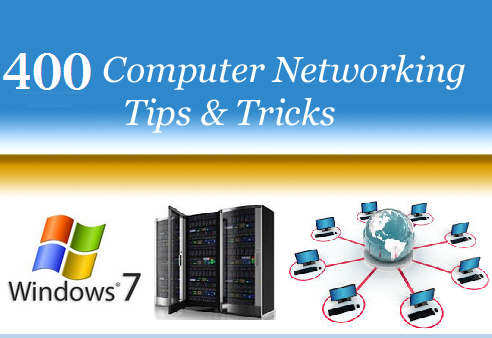
Computer Networking Tips for Gaming
Gaming is not just a hobby anymore, but a passion for millions of avid gamers around the world. However, nothing can be more frustrating than experiencing lag, high ping, or disconnections during an intense gaming session. While a powerful gaming rig is essential for a seamless gaming experience, your computer’s networking capabilities are equally important. In this article, we will explore some computer networking tips to optimize your gaming experience.
1. Upgrade Your Router
A good router is the foundation of a stable and reliable network connection. Investing in a router specifically designed for gaming can significantly improve your gaming performance. Look for routers that support the latest wireless standards such as 802.11ac or Wi-Fi 6, as they provide faster speeds and better coverage. Additionally, routers with Quality of Service (QoS) features can prioritize gaming traffic, ensuring a smooth gaming experience even during bandwidth-intensive activities.
2. Connect via Ethernet
While wireless connections are convenient, they tend to be less stable and reliable than wired connections. If possible, connect your gaming PC or console directly to the router using an Ethernet cable. Wired connections offer lower latency, reduced packet loss, and greater stability, ultimately resulting in a better gaming experience. If running a cable is not feasible, consider using powerline adapters or Wi-Fi extenders to enhance your wireless connection.
3. Optimize Network Settings
Ensuring your network settings are properly optimized can make a noticeable difference in your gaming performance. Here are a few settings to consider tweaking:
– Quality of Service (QoS): Enable QoS on your router if available, and prioritize gaming traffic over other network activities to reduce latency.
– Port Forwarding: Forwarding specific ports related to your game can improve connection stability and reduce potential conflicts.
– DNS Settings: Switching to reputable DNS servers like Google DNS or OpenDNS can improve the speed and reliability of your internet connection.
– Firewall Settings: Configure your firewall to allow your gaming applications and services to communicate freely, ensuring a smoother gaming experience.
4. Reduce Network Congestion
Network congestion can negatively impact your gaming experience, particularly during peak hours. To minimize congestion:
– Limit Background Activities: Pause or limit bandwidth-intensive activities such as video streaming or large downloads while gaming, as these can hog your available bandwidth.
– Prioritize Wired Devices: If multiple devices are connected to your network, give priority to your gaming device by limiting the bandwidth allocated to other devices.
– Use a Wired Connection for Streaming: If you like to stream your gaming sessions, consider using a separate wired connection for streaming to avoid additional strain on your gaming network.
5. Keep Your Network Secure
Ensuring the security of your network is crucial, both for your gaming experience and your overall online safety:
– Use a Strong Password: Secure your Wi-Fi network with a strong and unique password to prevent unauthorized access.
– Enable Network Encryption: Set up encryption, such as WPA2 or WPA3, to encrypt your network traffic and protect it from potential eavesdropping.
– Keep Firmware Updated: Regularly check for firmware updates for your router and apply them to ensure you have the latest security patches and bug fixes.
Conclusion
By following these computer networking tips, you can enhance your gaming experience and avoid common networking issues. From upgrading your router and optimizing network settings to reducing network congestion and prioritizing security, these steps will help you create a stable and reliable gaming network. So, get ready to dominate the gaming world with a lag-free and seamless gaming experience!


